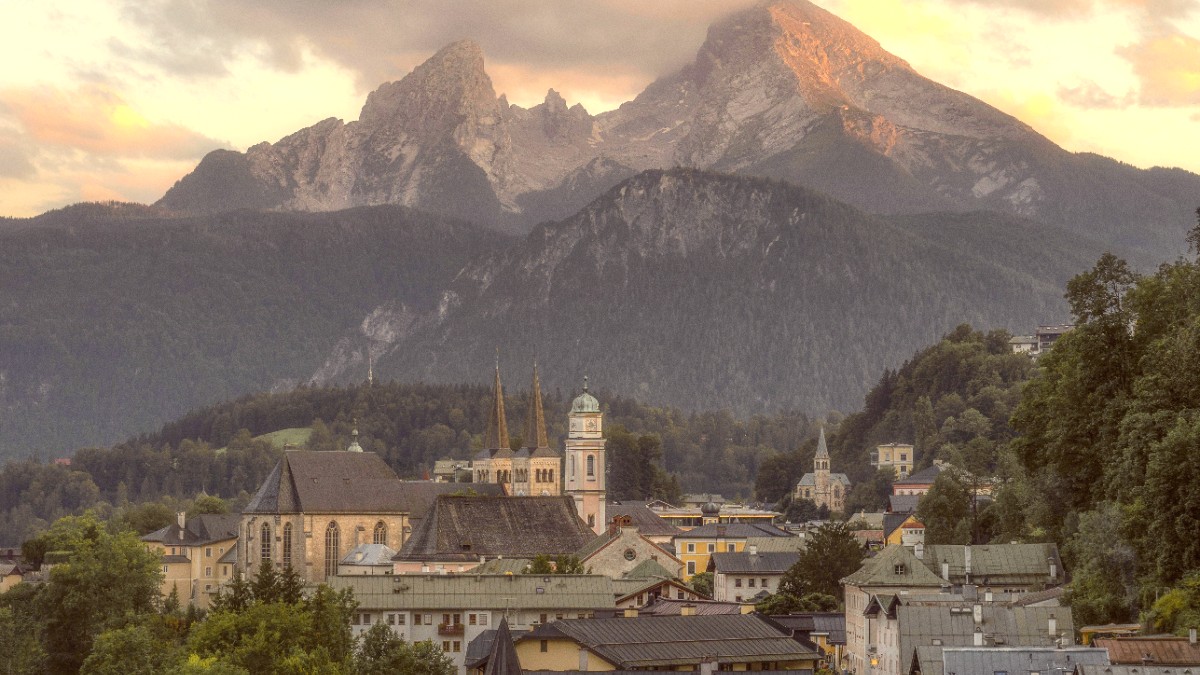
Bavarian Alps, Germany
Berchtesgaden National Park operates as a strict protection zone. Adhere to all park rules: stay on marked trails, avoid littering, do not disturb wildlife, and refrain from wild camping. Only electric boats are on Königssee.
Engage respectfully with Berchtesgaden's culture and history. Support local traditions by attending authentic folk events and purchasing local crafts. Be polite and punctual. Ask before taking close-up photos of people. Respect privacy.
Your choices as a traveler contribute to the local economy. Stay in local guesthouses, dine at traditional Gasthöfe, and purchase local goods. Support small, independent shops and services.
Make conscious decisions about what you buy and how you consume.
Germany operates an efficient and comprehensive recycling system. Your participation is valued.
Choose lodging that prioritizes environmental responsibility.
Minimize your environmental footprint while traveling.
Support brands that align with sustainable values.
Choose operators that benefit local communities and employ local guides. G Adventures is one such operator.
Discover Ethical ToursSome tours contribute directly to conservation projects. Look for transparent reporting.
Support ConservationAlways pack out everything you pack in. Respect wildlife by observing from a distance and never feeding animals. Stay on designated trails to minimize impact.
Respect and protect the region's diverse animal life.
Berchtesgaden National Park is home to a rich variety of wildlife. Observe animals respectfully from a distance.
Many alpine meadows are used for grazing cattle and other farm animals. Respect their space.
Hunting occurs in designated areas outside the National Park. Wildlife management aims for ecological balance.
Several species in the Berchtesgaden Alps are protected. Their habitats require careful consideration.
The Berchtesgaden National Park administration and local organizations dedicate efforts to preserving the natural environment.
Strict rules and ongoing research projects contribute to the park's ecological integrity and biodiversity.
Local communities participate in sustainable tourism practices and environmental education programs.
Information centers and guided tours raise awareness about responsible behavior in the sensitive alpine environment.
Consider supporting local environmental organizations or donating to the National Park for their ongoing conservation efforts.
Beyond sustainability, contribute positively to the region's well-being.
Support local farmers, producers, and businesses by choosing regional products and dining at traditional establishments.
Participate in local events and engage with the community to learn about and support their way of life.
If you wish to contribute directly, consider supporting local initiatives.
Capture the beauty of Berchtesgaden ethically.
The Haus der Berge National Park Centre offers exhibitions on the region's nature and geology.
Join National Park rangers for guided hikes that explore local ecology and conservation efforts.
Explore museums like the Heimatmuseum Schloss Adelsheim for insights into local history and traditions.
Do not enter restricted areas or private property, specifically in ecologically sensitive zones or working agricultural lands. Observe all signage.